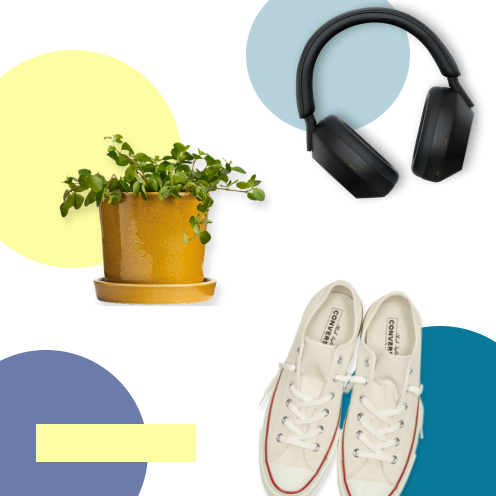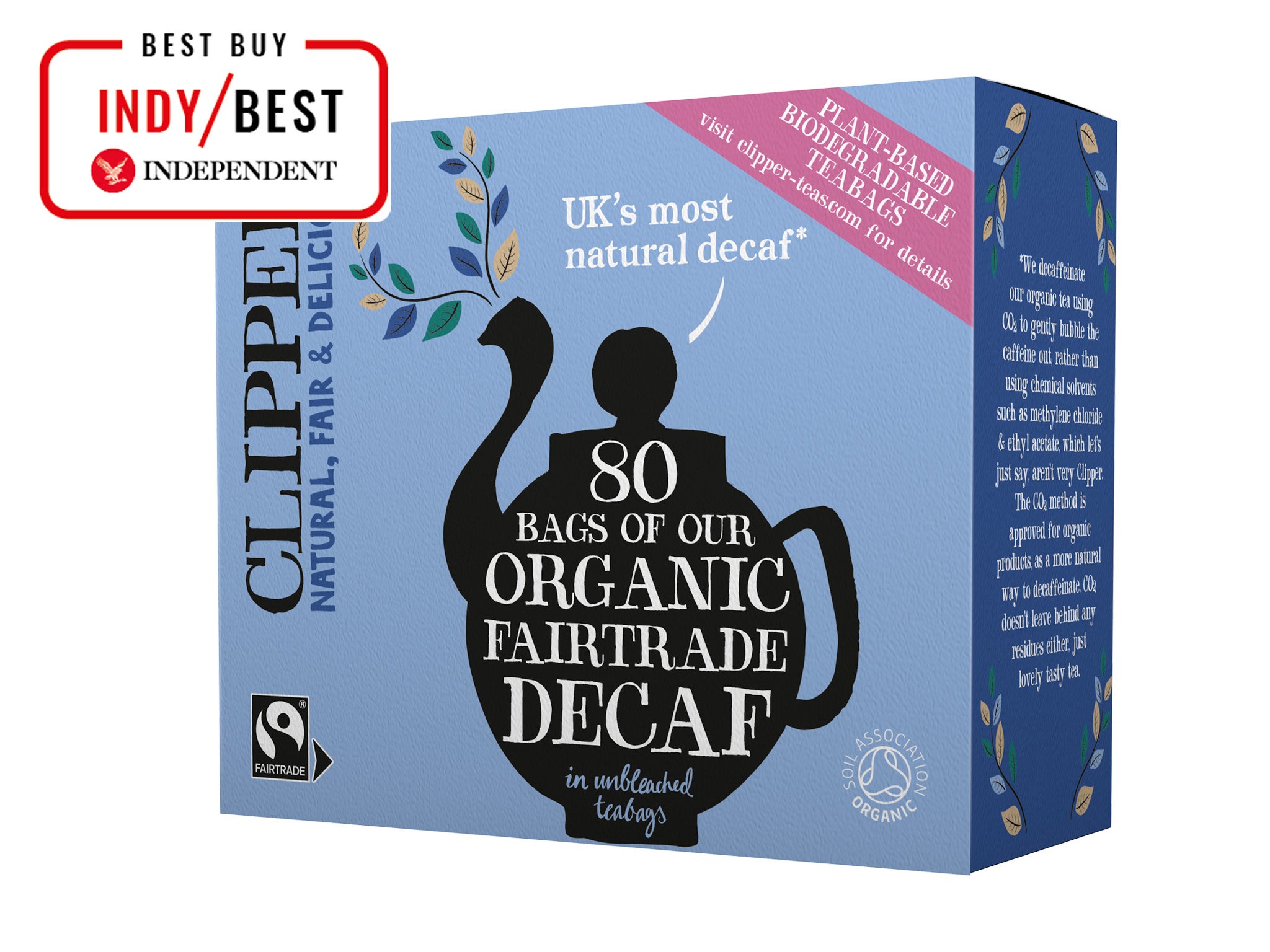
The Independent's journalism is supported by our readers. When you purchase through links on our site, we may earn commission. Why trust us?
9 best decaf teas that are worth every sip
Can’t start your day without a brew but want to forgo the hit? Then these are the bags you should buy
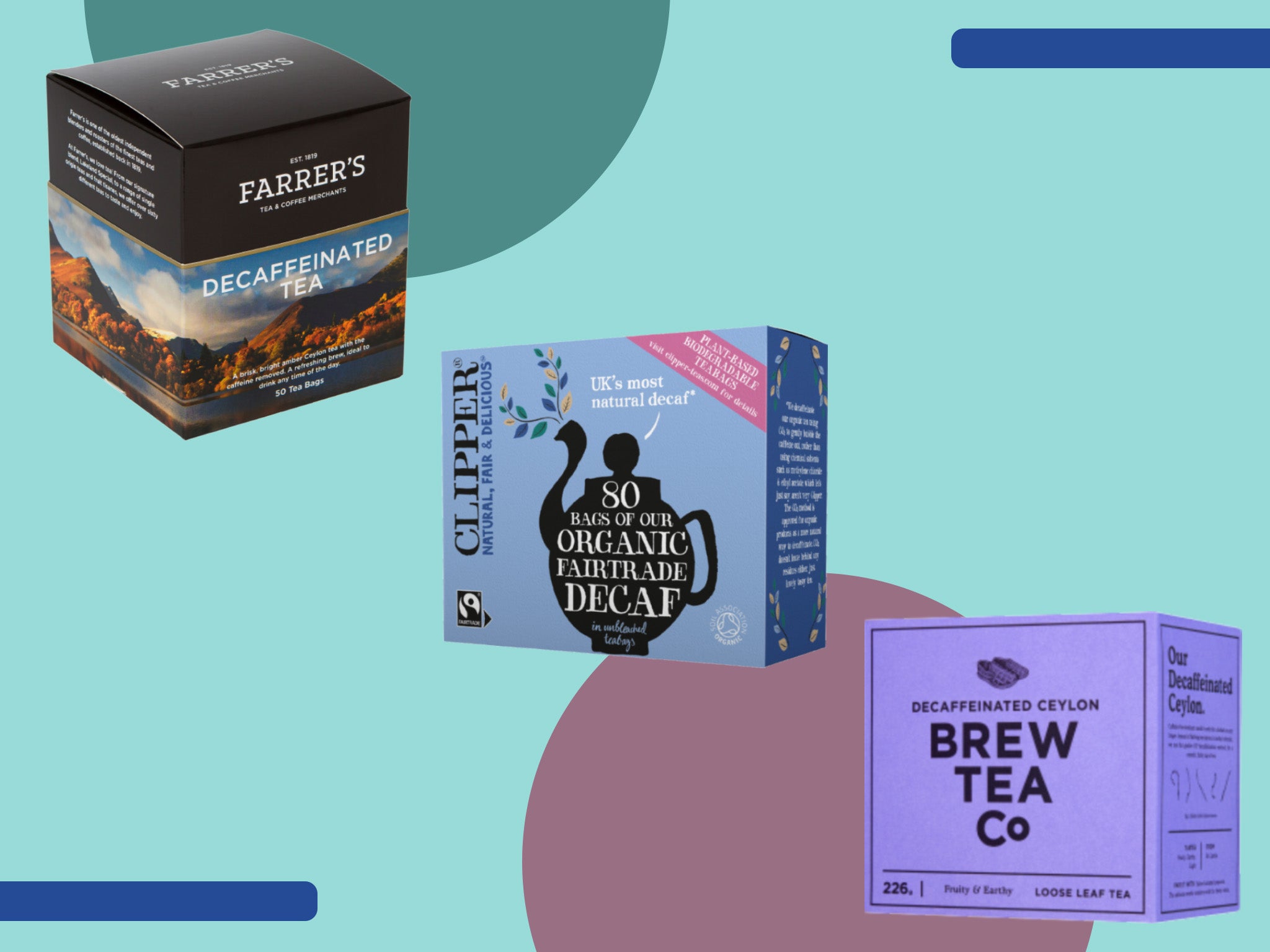
It’s a well-known fact that the UK is a nation of tea lovers – and there’s stats to back this up. According to the latest figures, each year we get through an impressive 61 billion tea bags, and since the start of the UK’s first lockdown in March 2020, 27 per cent of us are drinking even more of the stuff.
Tea leaves – especially black tea blends like English breakfast tea – naturally contain caffeine. Generally speaking, in the average cup of black tea with milk you would expect to find around 30-47mg of caffeine.
But of course this depends on the blend of the tea, how long you leave your cuppa to brew, the temperature of the water and how much milk you use.
Different tea makers use different decaffeination processes. By law, tea labelled as “decaffeinated” must have less than 2.5 per cent of its original caffeine level. It’s important to note that even after the decaf process, black tea still contains traces of caffeine.
At present, there are four main types of decaffeination methods used to strip the leaves of their caffeine. This includes using: ethyl acetate, water processing, methylene chloride and carbon dioxide (CO2). The latter two methods are the most common. But either way, all decaffeination methods can slightly alter the flavour of the humble cuppa.
Read more:
If you’re thinking about cutting back on your caffeine without having to cut back on your cuppas, you’ve come to the right place. Over the course of three weeks, we’ve taste-tested more than 35 cups of decaffeinated black tea to help find the best tasting brews.
We judged them on their flavour, colour, price and the all-important eco-credentials. Here are the best decaffeinated black teas that are worth every sip.
You can trust our independent reviews. We may earn commission from some of the retailers, but we never allow this to influence selections, which are formed from real-world testing and expert advice. This revenue helps to fund journalism acrossThe Independent.
Clipper organic and fairtrade everyday decaf tea, box of 80

Here’s an impressive claim: Clipper’s everyday decaf tea is the “UK’s most natural decaf”. That’s according to the Dorset-based brand who craft unbleached, plant-based and biodegradable tea bags. But the impressive list of tea credentials doesn’t end there. Not only are Clipper’s teas organic – they are also Fairtrade. So it’s no wonder why we couldn’t get enough of this decaf.
Clipper uses the CO2 method to decaffeinate its tea leaves. To do this, the tea leaves, which are blended with Assam, are soaked in water and then placed under pressure. CO2 is passed through the leaves, where it bonds with the caffeine. Once filtered, the newly decaffeinated tea leaves are dried and packed up ready to be enjoyed. The result? A light yet malty tea that’s refreshing brisk all at the same time. If you’re looking for a deliciously tasty decaffeinated cuppa that comes with a clean conscience, you’ll find it in Clipper.
Joe’s Tea Co. ever-so-english decaf tea bags, box of 100
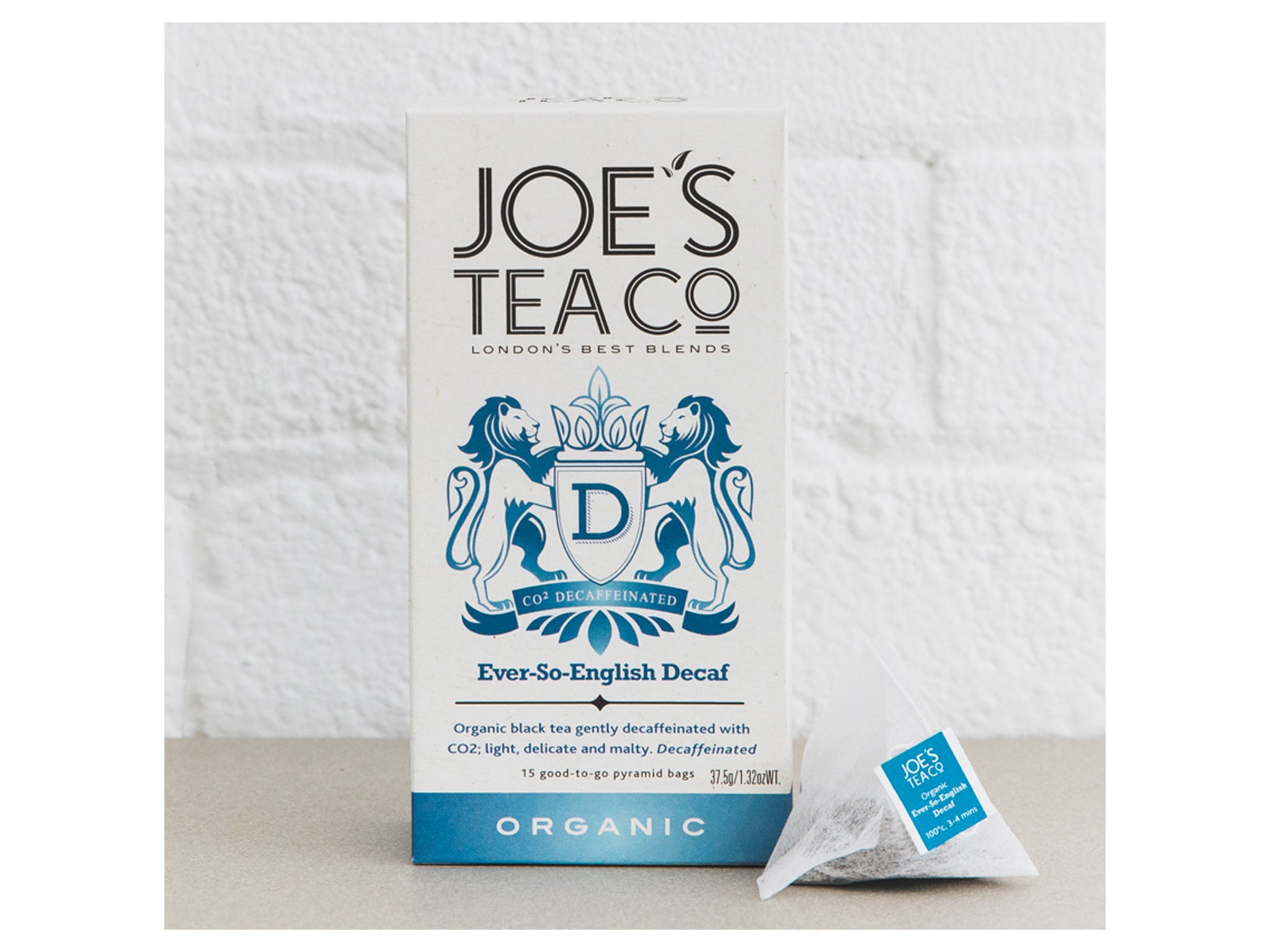
Joe’s Tea Co.’s ever-so-English decaf tea is a triple threat when it comes to the all-important tea must-haves. Gently decaffeinated? Tick. Full of flavour? Tick. On its way to being fully biodegradable? Tick.
We taste-tested the pyramid tea bag versions of the Ever-So-English Decaf, although a loose leaf option is available. The tea leaves are handpicked and directly traded from ethical plantations in India. So you can enjoy this brew knowing exactly how it made its way from crop to cup. It’s light, delicate and marvellously malty. According to Joe, it’s been “gently decaffeinated” with CO2 to “ensure the best flavour, and the least harm to the environment”.
Joe suggests brewing your cuppa for three to four minutes, but if you prefer your tea strong, we’d recommend steeping it for at least four. While the brand’s pyramid bags can be recycled, as they are made from food-safe polyester, Joe’s Tea Co. has plans to switch over to a biodegradable option by spring 2021. Watch this space.
Taylors of Harrogate Yorkshire tea decaf, box of 80
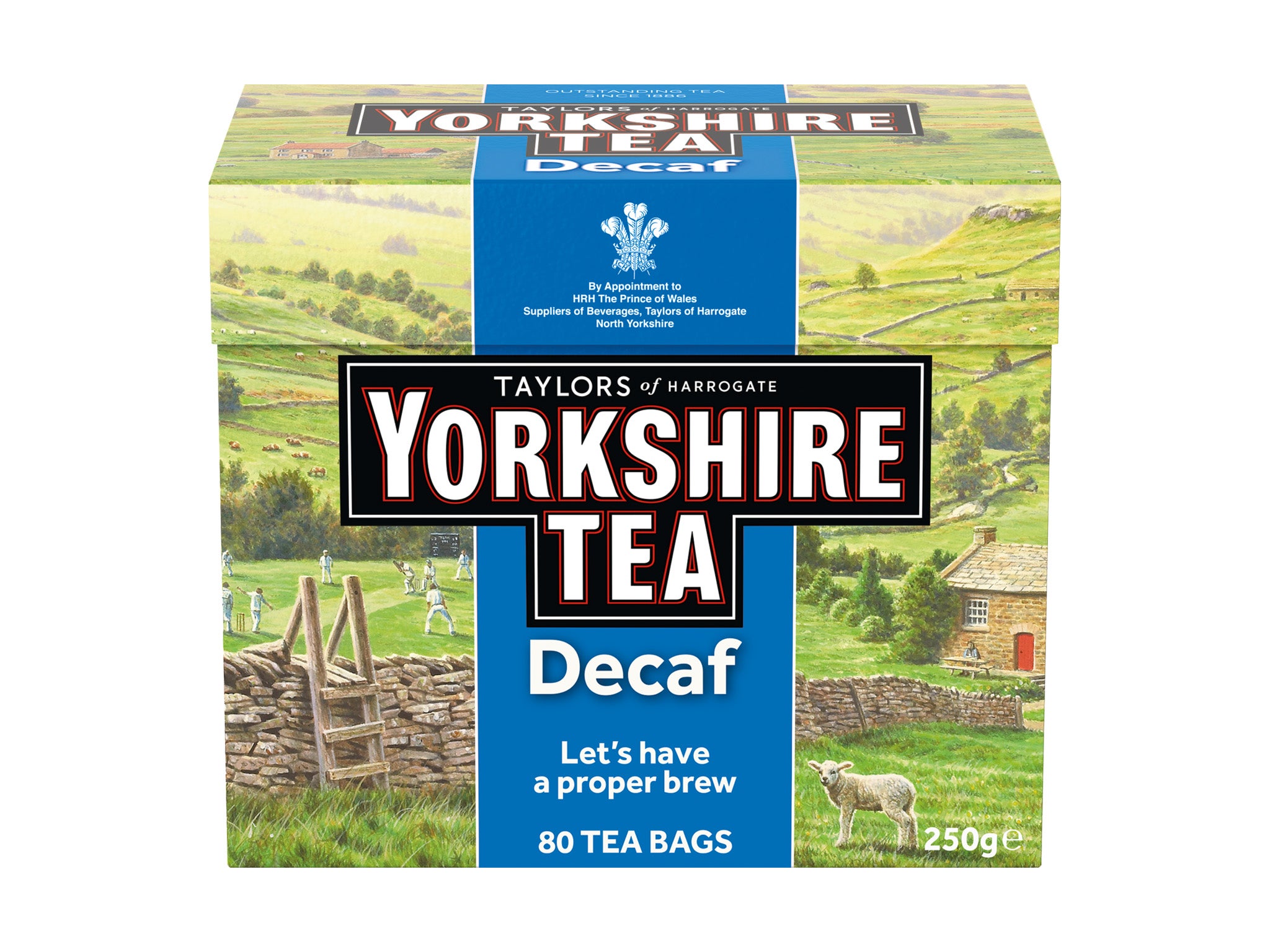
Say farewell to disappointing decafs because you’re in good hands with Taylors of Harrogate. The brand has been crafting its delicious tasting Yorkshire tea for more than 100 years and the family-run business prides itself on creating special blends of tea that don’t compromise on fairness, flavour and quality. And this is certainly the case for its decaf option.
Strong, tasty and full of colour, the decaf is jam-packed with a blend of tea leaves from Africa. This particular robust blend stands up to the methylene chloride method used to decaffeinate the tea. The brand investigated this method of decaffeination over “a long period of time” before launching the product on supermarket shelves. Each tea bag is thought to contain a maximum of 0.2 per cent of caffeine. Therefore, it’s a great alternative to caffeinated options.
Brew Tea Co decaffeinated ceylon, box of 40
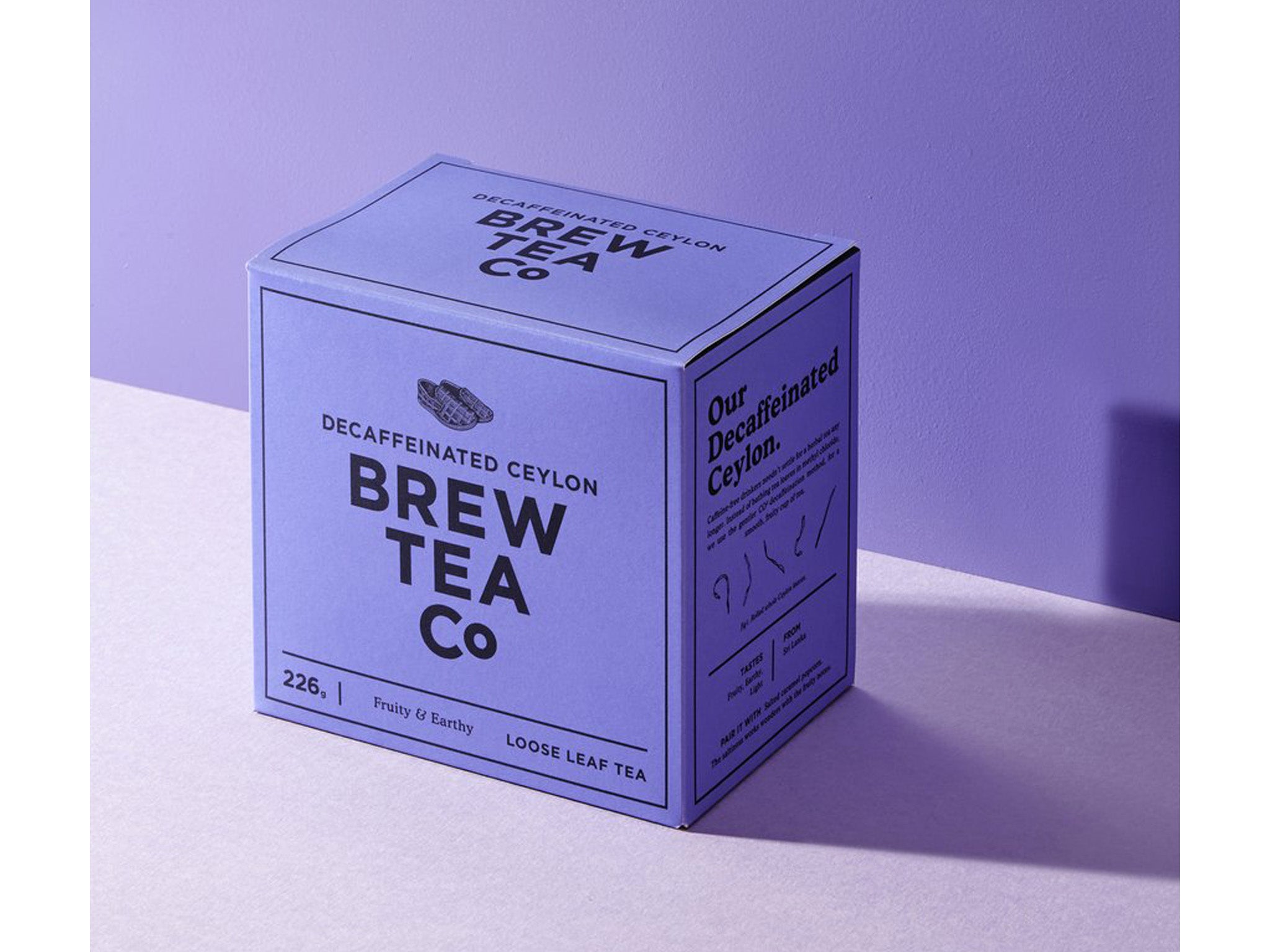
Here’s a tea brand that looks as pretty as its tea tastes. Available in loose form or bagged, Brew Tea Co decaffeinated ceylon comes from Sri Lanka and undergoes the CO2 decaff process before reaching the shelves. The tea connoisseurs said they do this in a bid to keep the flavour and be a little “gentler on the leaves to ensure they remain intact”.
The latter is really important for Brew Tea Co because the tea reaches you as rolled whole leaves – never dust. The tea makers pick leaves and buds from the top of the tea plant, which are gently rolled and dried. It’s thanks to this that you get a tastier tea and a richer, tastier cup. We loved the fact this brand also cares about its mark on the planet. The tea bags are 100 per cent compostable and biodegradable as they are made from soilon. Plus this tasty tea has got one of the smallest amounts of caffeine content at less than 0.01 per cent so it’s a win win.
Fortnum & Mason royal blend decaffeinated, box of 25
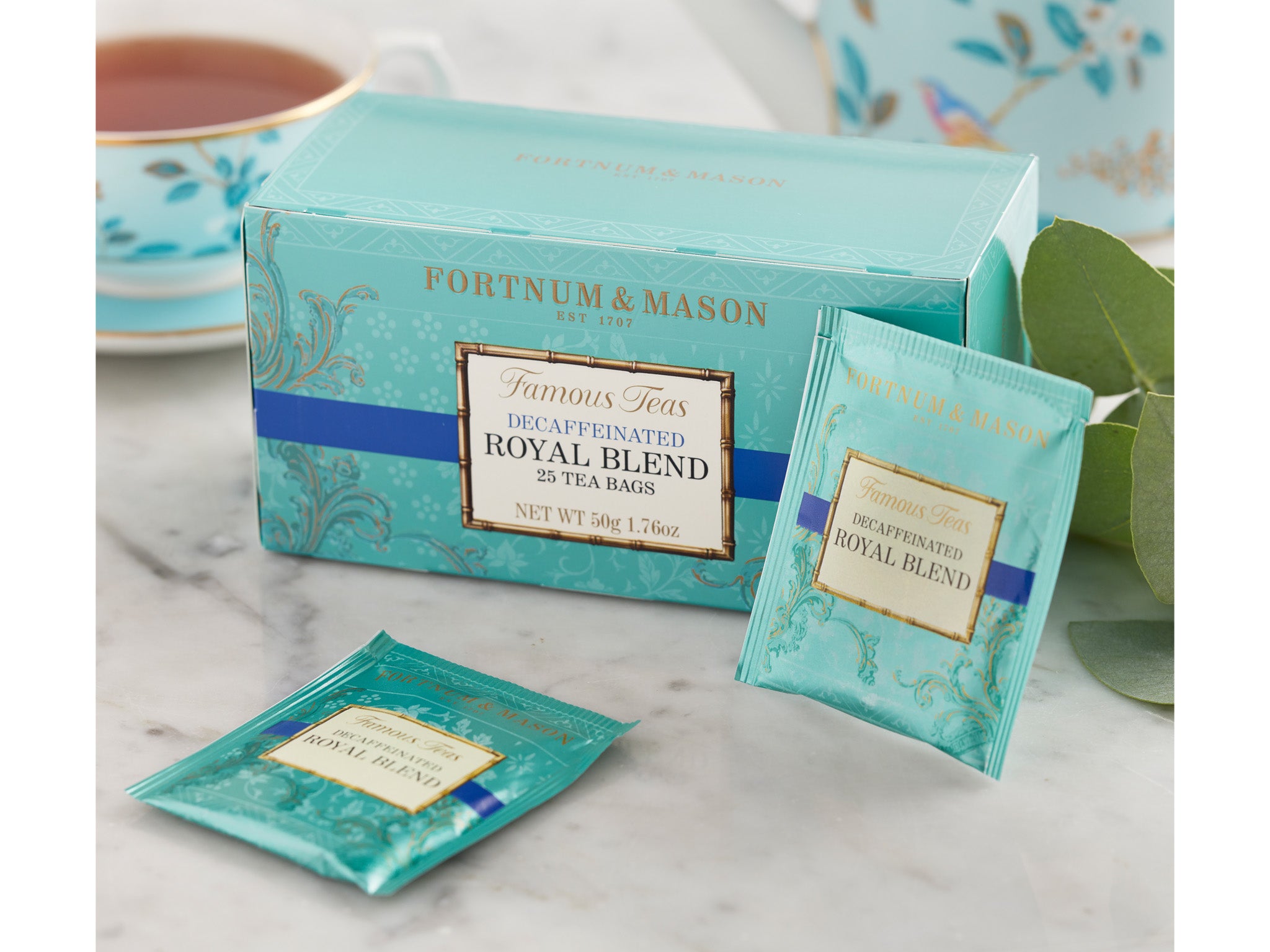
If you’re looking for a brew that comes with a touch of something special, Fortnum & Mason has you covered. According to the brand, the “royal” tea is its “most famous” blend as it was originally created for King Edward VII. In this classic cuppa, the brewers blend two black teas – Ceylon and Assam – to create a very traditional brew. It’s malty and honey-like in flavour and depending on how you like your tea, it can be as strong or as weak as you fancy. The tea makers use the CO2 process to decaffeinate its Kenyan tea leaves and you’ll find less than 0.4 per cent of caffeine in every cup. If it’s good enough for royalty, it’s certainly good enough for us.
Tetley decaf tea bags, box of 120
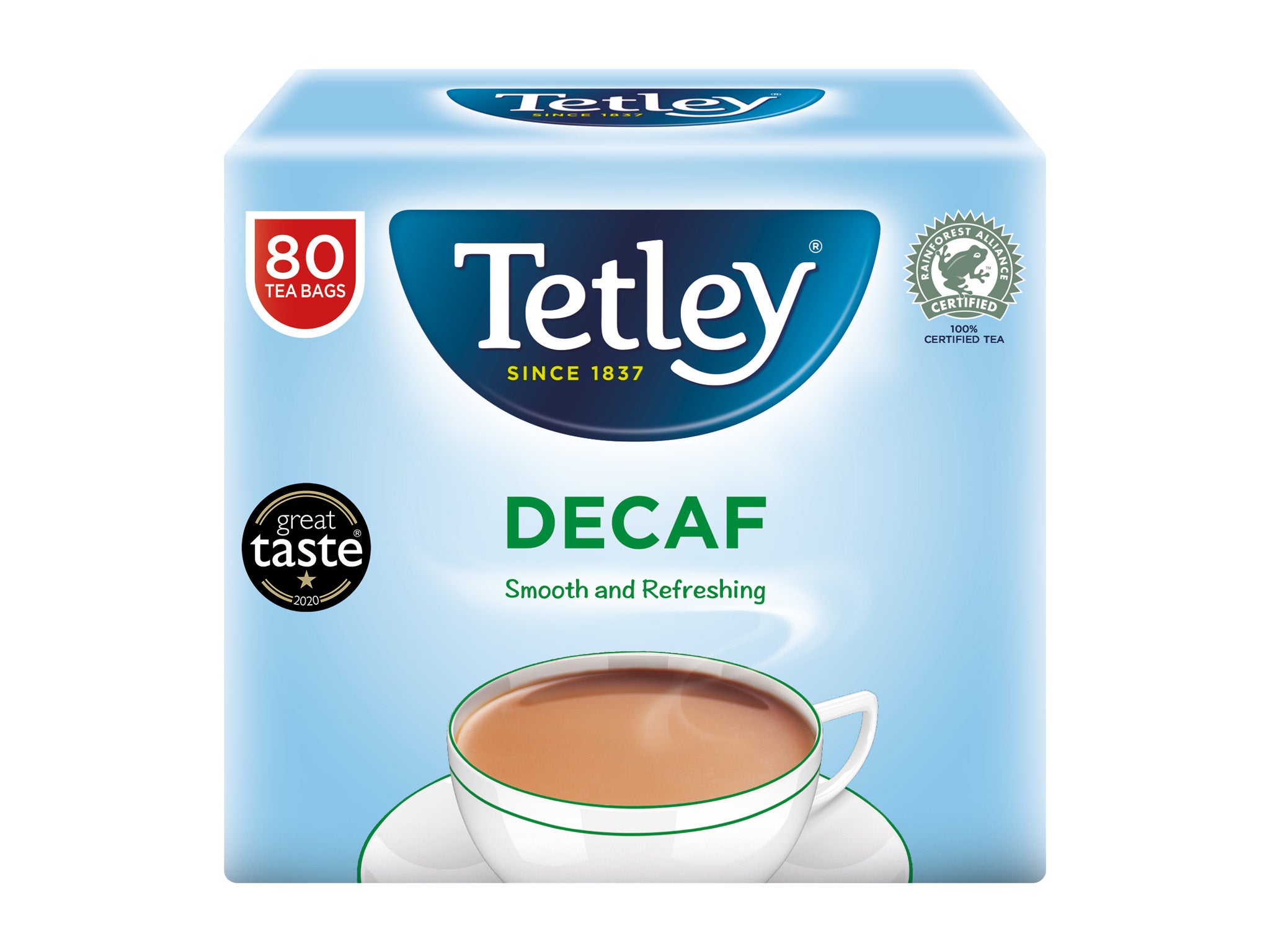
Tetley’s decaf tea might be stripped of caffeine but it’s not stripped of taste. Helping to retain its taste, the tea makers use dichloromethane (otherwise called methylene chloride) to remove the caffeine. A spokesperson for the brand said: “This method retains more of the tea flavour as it is a more selective process in which less non-caffeine components are removed.”
The decaffeination process takes the level of caffeine in each tea bag (which is around 2.5-4 per cent) down to 0.2 per cent – so it’s ideal if you’re partial to a strong cuppa but don’t want the caffeine. But don’t just take our word for it. Tetley’s decaf tea won at the 2020’s “Great Taste Awards”, after more than 500 expert judges claimed it was “a drink that delivers fantastic flavour”.
Whittard decaf English breakfast tea, box of 50
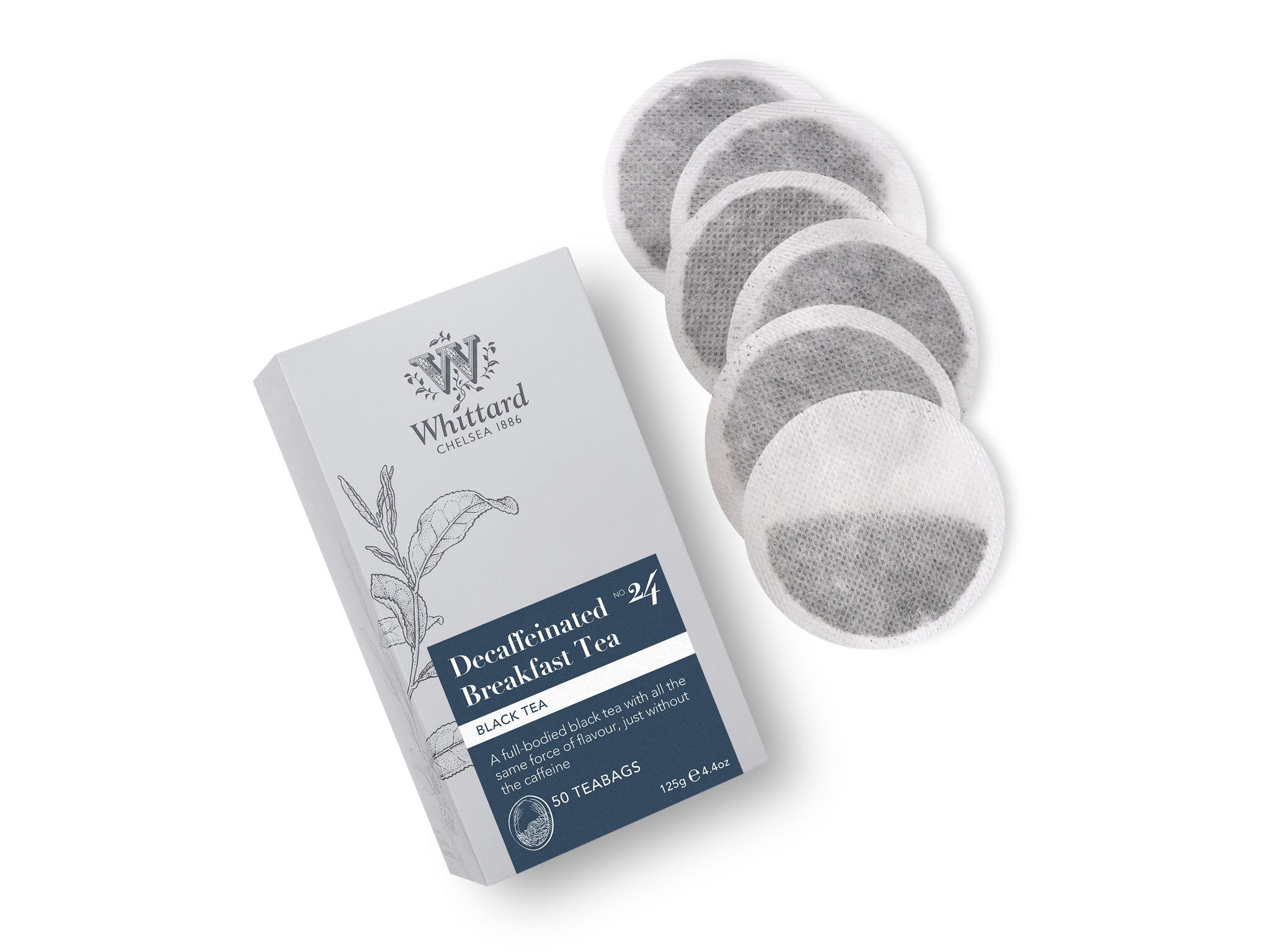
Whether you like loose tea or bagged tea, Whittard has a tea for every taste. The British tea company has been brewing tea for 135 years and creates the finest teas around. We trialled the circular bagged versions which had just the right amount of strength to smoothness and also felt light and refreshing.
Its leaves are a blend of several origins and Whittard uses the methylene chloride decaffeination method to extract the caffeine. The brew is tasty and is full of colour, even after a good glug of milk was added. We were also pleased to discover that the tea bags are compostable and the envelopes are made from waxed paper so can be recycled.
Farrer’s decaffeinated ceylon tea, box of 50
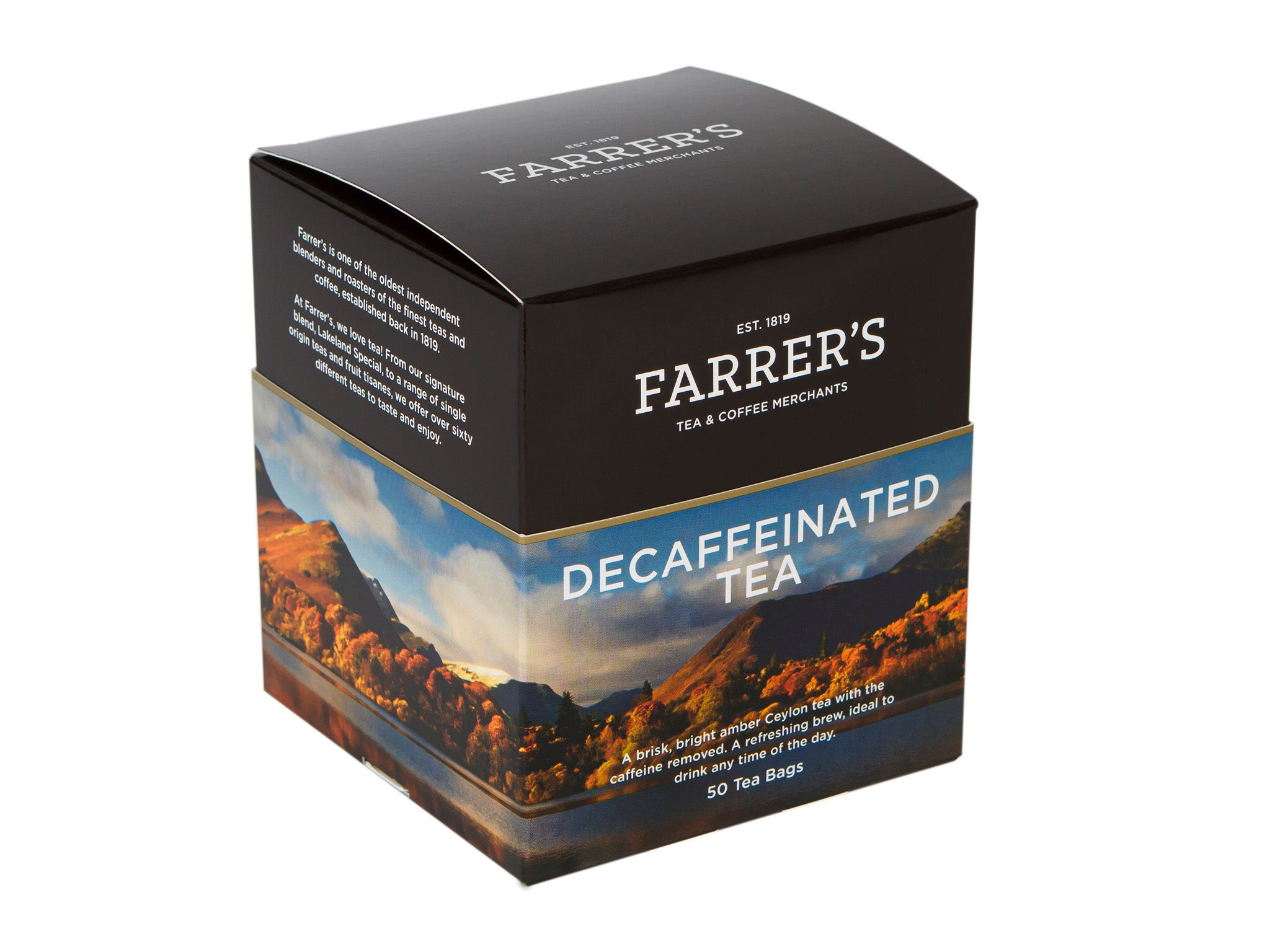
Keeping its tea chemical free, Farrer’s manages to strike the balance between taste, freshness and quality. The artisan brand is based in Cumbria and has been an expert in tea and coffee since 1819, and boy can you tell.
We got to taste its Fairtrade decaf ceylon tea which is grown in Sri Lanka and learned it removes the caffeine from the tea using CO2. We tasted it in the morning, noon and night and can report it tasted like “real tea”. With its brisk taste, bright amber colour and super fresh flavour, this is a delicious tasting decaf that’s worth coming back to again and again.
Nemi Teas decaf English breakfast tea, 200 teabags
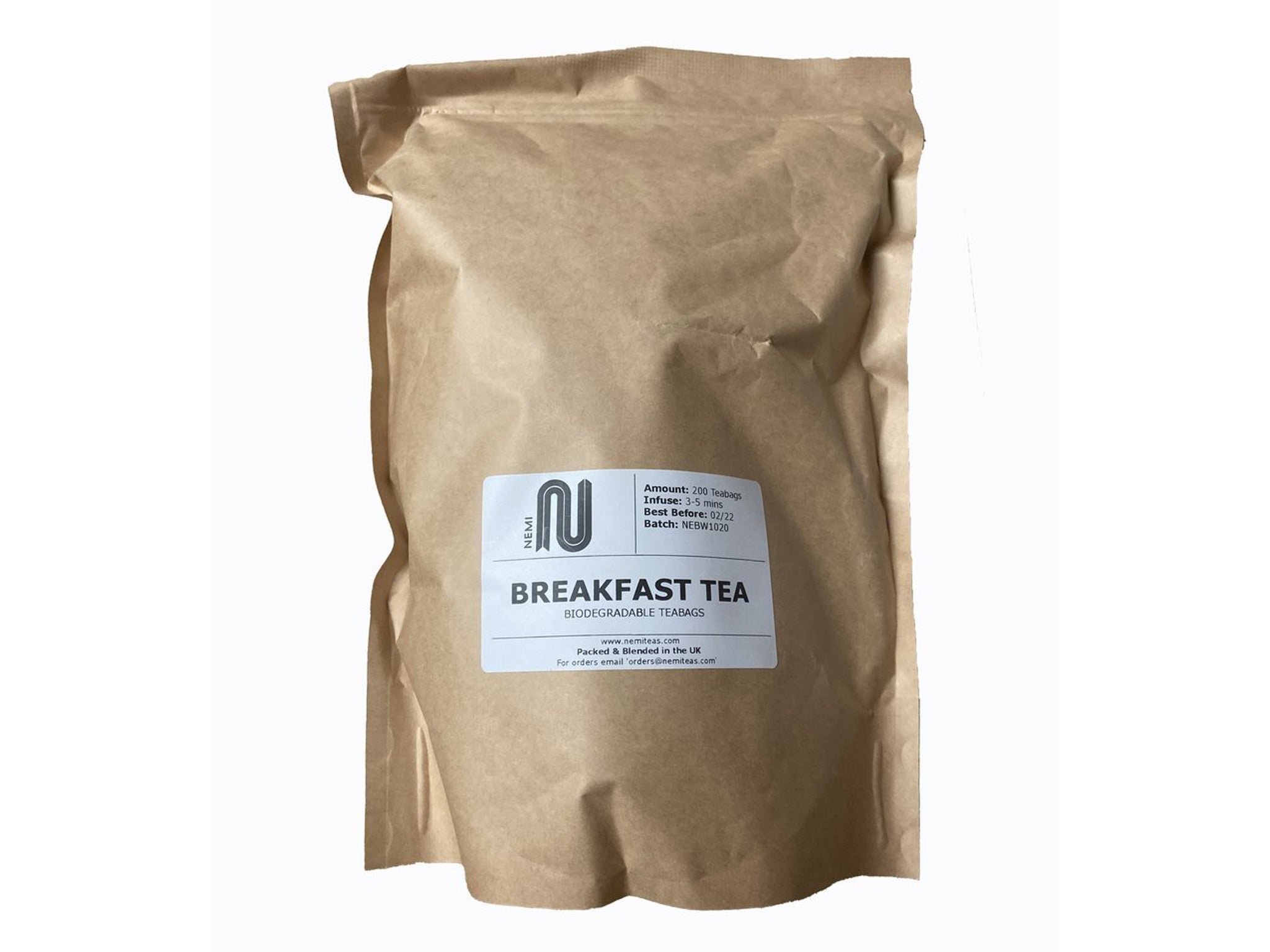
We devoured Nemi’s Fairtrade decaf English breakfast tea, which is picked from tea plants in south India. The brand then uses the CO2 process to rid the leaves of caffeine, leaving less than 0.1 per cent. Nemi Teas are also plastic free, its beautiful packaging is biodegradable and the teas are organic. This really is tea with a conscience. The brand sells its decaf English breakfast tea wholesale. Drop them an email if you’d like to find out what all the fuss is about.
Tea really does bring people together. And this is seen in practice with Nemi Teas. Aside from its decaf English breakfast tea – which is delicious, by the way – one of our other favourite things about this brand is that it provides employment to refugees on its tea stalls to help them enter into the UK’s workforce.
The verdict: Decaf tea
Keeping its taste and colour without compromising on flavour, Clipper’s decaf tea secured our top spot. Its beautiful packaging and eco-friendly credentials also helped to nudge it over the line. Plus it’s organic, Fairtrade and pretty affordable – especially if you are drinking an extra cup or two a day.
If being eco is high on your list, try the deliciously tasting decaf from Brew Tea Co. It went down a treat and each sip felt special. What more could you ask for?
If you also like a good cup of joe to start the day why not check out our review of the best independent coffee brands
